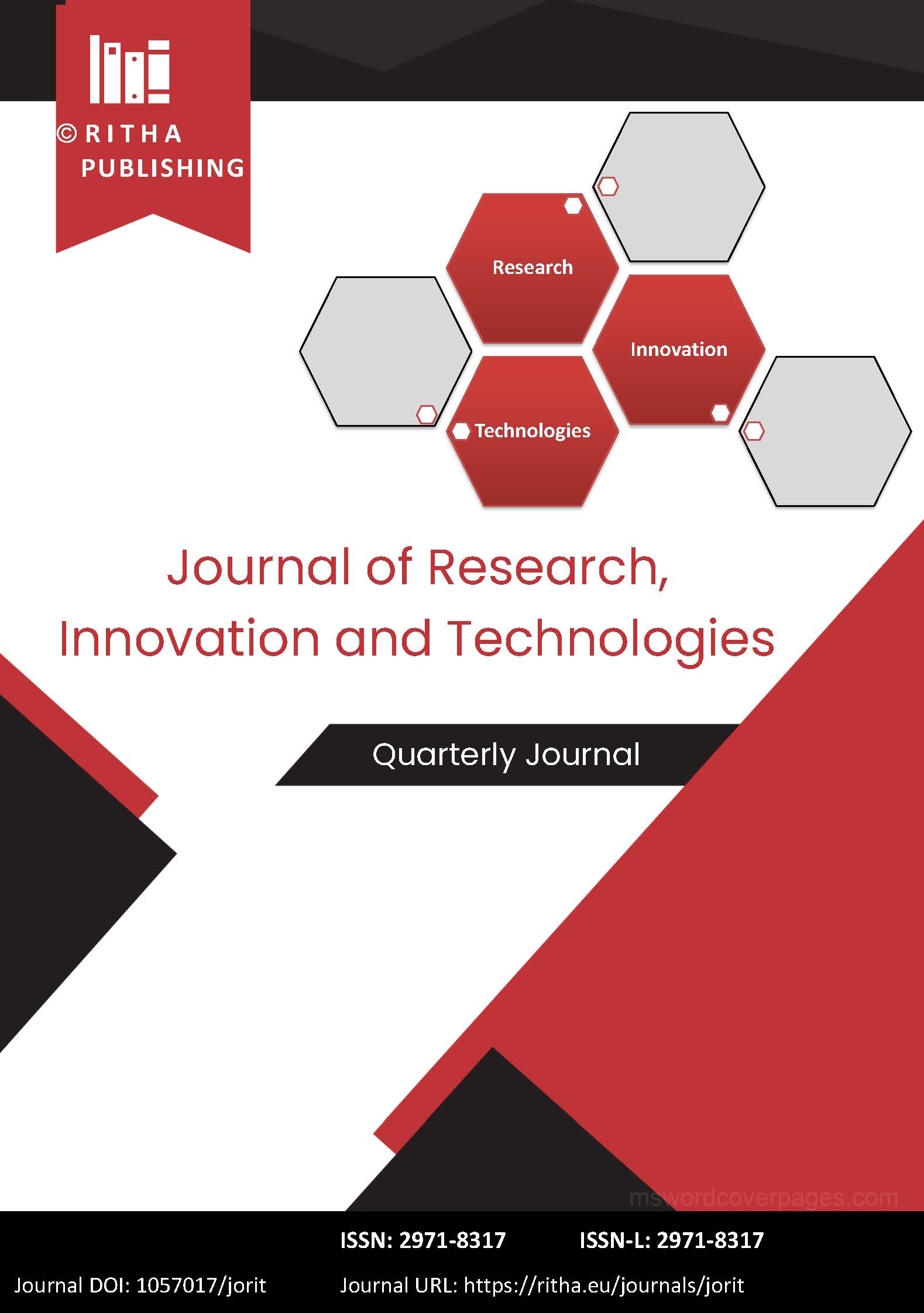Journal of Research, Innovation and Technologies (JoRIT) published by ACADLORE Publishing from Issue 3, Vol IV (2025)
ISSN: 2971 – 8317
ISSN-L: 2971 – 8317
Journal DOI: 10.57017/jorit
Journal DOI URL: https://doi.org/10.57017/jorit
Editor in Chief:
-
E-mail: jorit@acadlore.com
Weblink: https://ritha.eu/journals/JORIT
Abstracting and Indexing in:
§ SCOPUS
§ Central and Eastern European Online Library (CEEOL)
§ Index Copernicus ICI Journal Master List
§ EBSCO Central & Eastern European Academic Source (CEEAS)
§ EBSCO Business Sources Ultimate
Acceptance Rate 2022: 37%; 2023: 34%; 2024 – 38%.
New submissions should be made through the ACADLORE submission platform.
⦁ Editor in Chief:
- business information technologies, virtual organisation, digital transformation, knowledge management, collaborative technologies
⦁ Associate Editor:
- data management; machine learning, dynamic panel data, quantitative research methods for policy evaluation
- artificial intelligence, intelligent agents, multi-agent systems, information & communication technologies
- innovation management, digital transformation
- multi-criteria decision making analysis, research statistics and econometrics
- quantitative & qualitative research methods, management
Governance Policy for the Journal of Research, Innovations and Technologies
Journal of Research, Innovation and Technologies is an open access journal which means that all content is freely available without charge to the user or their institution. Users are allowed to read, download, copy, distribute, print, search, or link to the full texts of the articles, or use them for any other lawful purpose, without asking prior permission from the publisher or the author. This is in accordance with the Creative Commons Attribution License 4.0 and BOAI definition of open access.
Publication ethics of Journal of Research, Innovation and Technologies refers to the principles, guidelines, and standards that govern the ethical conduct of all parties involved in the publication process, including authors, editors, peer reviewers, and publishers. The primary goal of our publication ethics is to maintain the integrity and credibility of the Journal, ensuring that published papers are accurate, reliable, and transparent.
Publication Ethics and Publication Malpractice
The Journal of Research and Innovation in Technology (JORIT) was established in 2022 as a bi-annual scholarly journal, published by RITHA Publishing House, with the aim of advancing knowledge and promoting high-quality research across a wide spectrum of technological disciplines.
In response to increasing academic interest and a growing volume of high-quality submissions, JORIT adopted a quarterly publication schedule in 2025. Starting with Issue 3, Volume IV (2025), and as part of a broader editorial transition, the journal is now published by ACADLORE Publishing.
Under its new publishing framework, JORIT maintains its strong commitment to rigorous peer review, academic integrity, and innovation in technology research.
New submissions should be made through the ACADLORE submission platform.





